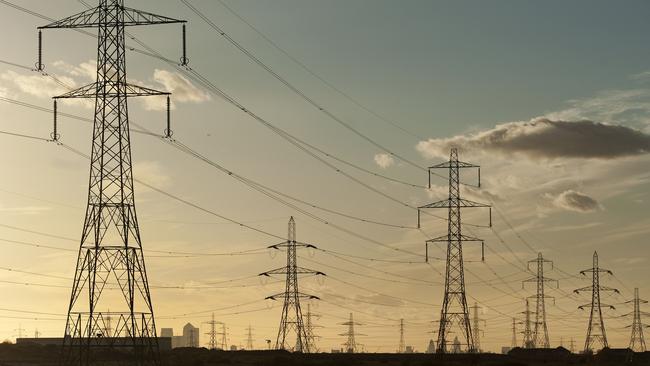NEG puts reliability onus on big power customers
Plans to make Australia’s biggest energy consumers responsible for the reliability of electricity supply are a concern for business.

Plans to make Australia’s biggest energy consumers responsible for the reliability of electricity supply have emerged as the biggest concern for business users who are worried they could be forced to absorb new costs in managing electricity contracts.
New details of the national energy guarantee policy released over the weekend showed the 100 biggest users of electricity — those with a peak load of more than 5MW — would be accountable for the reliability of supply.
The NEG would require companies to sign contracts to dial down usage or “firm” any “intermittent” supply with dispatchable electricity such as battery, hydro and gas peaking generators.
The government’s Energy Security Board, which designed the NEG, wants to make it an “opt-out” scheme that would force companies to ensure their own supply or contract with large retailers to take over liability.
ESB deputy chairwoman Claire Savage told The Australian the “opt-out” requirement would strengthen the hand of companies in negotiating with retailers by forcing them to consider the costs.
But members of both the Ai Group and the Energy Users Association of Australia were concerned that it could add to the costs of companies that do not have in-house expertise in electricity contracts. “Some of them are large consumers, they are not energy market participants,” said Andrew Richards, chief executive of the Energy Users Association.
“Their job is not to trade energy; if they are required to do that it will increase their costs.”
Added costs could include acquiring an Australian Financial Services Licence as well as the technology and personnel needed to manage electricity contracts.
Mr Richards said big users also wanted reassurance about existing contracts with renewable energy producers that were signed before the reliability requirement was introduced.
The NEG attempts to merge energy and environment policy for the first time by requiring electricity retailers to source power that is reliable, affordable and reduces emissions according to regulated targets. The ESB has also proposed that new penalties of up to $100 million be introduced and others increased to enforce compliance with the emissions and reliability requirements.
Ai Group policy adviser Tennant Reed said the ESB expected that most companies would meet the obligation by contracting it out to electricity retailers rather than doing it themselves.
But the price would be for customers to agree to longer-term contracts that could underpin investment in capital-intensive generation equipment.
Companies had typically contracted for one or two years, but might have to surrender some of that flexibility in return for the certainty of passing on their obligation, Mr Reed said.
But if the obligation was “opt in”, those companies that wanted to trade energy could be allowed to do so while others could continue as they had and spread any higher energy costs from shorter-term contracts across the market.
“Energy users are dubious about being handed new regulatory responsibilities,” Mr Reed said. “They don’t really want to manage it themselves and they may just use it to get a better contract with the retailer.”
The obligation would apply to the biggest facilities using electricity, rather than the aggregate consumption of a given company. But it is expected to fall on businesses including the Tomago and Portland aluminium smelters, paper and packaging producers such as Visy and steel producers.
The reliability obligation would be triggered under the NEG if there was a shortfall of supply to meet demand as little as three years ahead, with regulator forecasts providing a signal for new investment in generation capacity.
But AEMO has said it does not see any shortfall emerging until at least 2022 if the Liddell power station is closed and its 1680MW generation capacity replaced.
State ministers meet in August to approve the final version of the NEG and have it legislated by the states.
Two weeks of outages at five of NSW’s six coal-fired power stations knocked out nearly a third of their capacity and sent wholesale prices soaring.

To join the conversation, please log in. Don't have an account? Register
Join the conversation, you are commenting as Logout